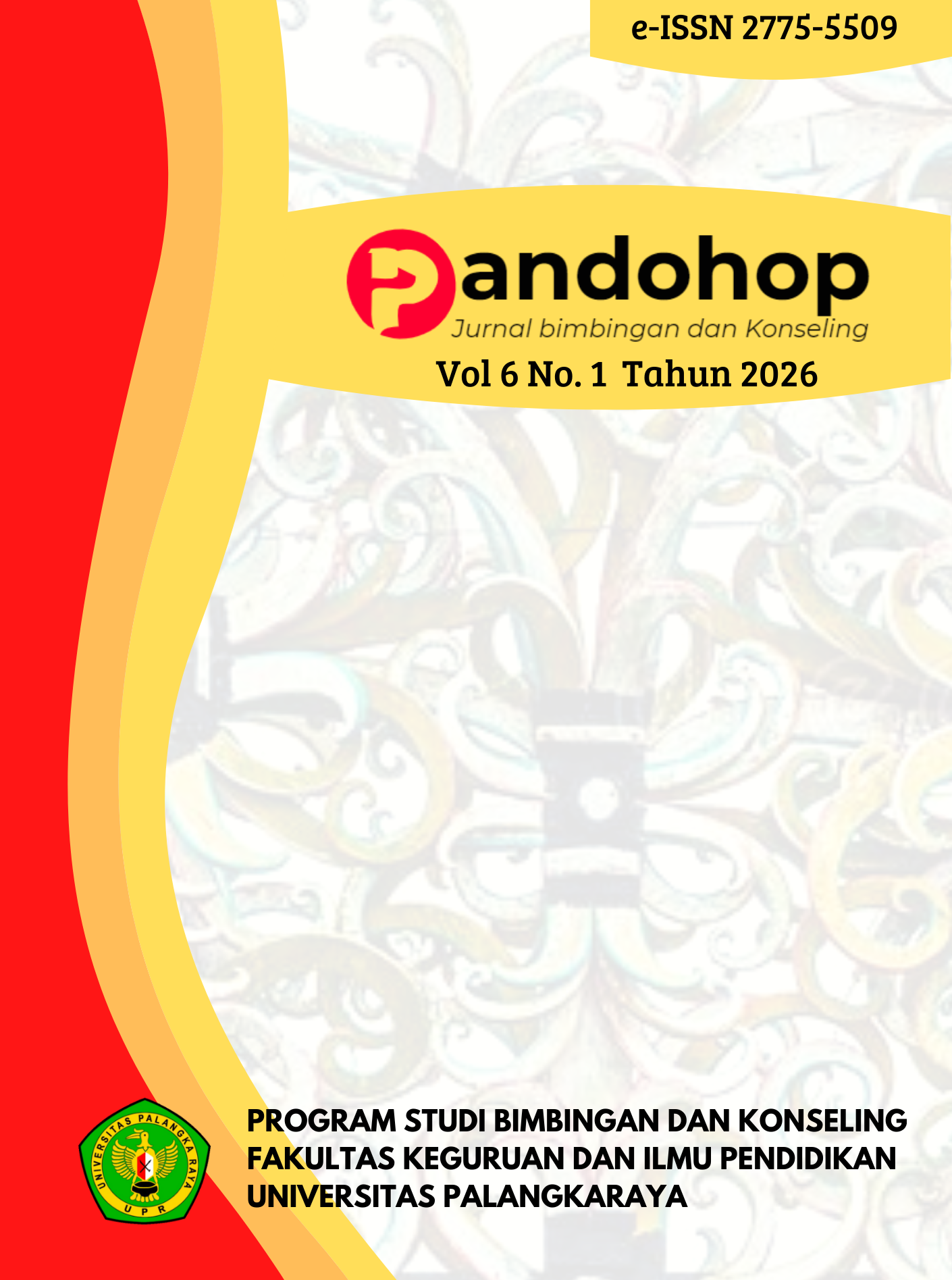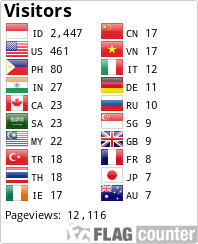Augmenting Human Connection: A Systematic Review Of Artificial Intelligence In Counseling Practices, Ethics, And Cultural Adaptation
DOI:
https://doi.org/10.37304/pandohop.v6i1.20310Keywords:
artificial intelligence, chatbot therapy, counselor education, cultural adaptation, ethical AIAbstract
The global mental health crisis, intensified by the COVID-19 pandemic, has highlighted significant gaps in access to psychological services, particularly in underserved and low-resource settings. Artificial Intelligence (AI) has emerged as a transformative tool in counseling, offering scalable, personalized, and cost-effective solutions such as chatbot-assisted therapy, affective computing, and AI-driven counselor training. However, its rapid adoption raises ethical and cultural challenges related to empathy, human connection, and algorithmic bias. This study analyzes how AI technologies—specifically chatbots, Natural Language Processing (NLP), and predictive analytics—are applied in counseling practices, focusing on their benefits, limitations, and ethical implications. It also proposes a strategic framework for responsible AI integration across individual, educational, and community counseling contexts. Employing a Systematic Literature Review (SLR) with an integrative qualitative approach, 60 peer-reviewed articles published between 2019 and 2025 were examined. Data were categorized into six themes: chatbot-based therapy, diagnostic tools, counselor education, client perceptions, cultural adaptability, and ethical governance. Findings reveal that while AI performs well in structured tasks such as CBT exercises, mood tracking, and initial assessments, it falls short in addressing complex relational needs like trauma, empathy, and cultural nuance. AI-simulated clients benefit counselor training but risk over-standardizing interpersonal skills. Client trust and satisfaction vary by age, digital literacy, and cultural context. Ethical concerns—such as data privacy, informed consent, and emotional manipulation—are prevalent. This study concludes that AI should complement, not replace, human counseling. It contributes a multidisciplinary synthesis and emphasizes the need for culturally sensitive AI systems, long-term outcome research, and explainable AI (XAI) frameworks for transparency and accountability.
Downloads
References
Ardiana, I. M., Hartati, S., & Prasetya, A. W. (2020). The use of chatbot as a simulation media in counselor education. Jurnal Bimbingan Konseling, 9(2), 100–109. https://doi.org/10.15294/jubk.v9i2.39209
Ardimen, A., Indrawati, T. H., & Nurjanah, L. (2023). Cultural Sensitivity in AI Counseling: Lessons from Indonesian Practitioners. Asian Journal of Counseling, 30(1), 54–72. https://doi.org/10.1080/ajc.2023.0301.004
Balloccu, G., Asaro, M., & Ruggeri, K. (2024). Integrating AI into School Counseling: Opportunities and Challenges. Journal of Educational Psychology, 116(2), 345–361. https://doi.org/10.1037/edu0000708
Braun, V., & Clarke, V. (2006). Using thematic analysis in psychology. Qualitative Research in Psychology, 3(2), 77–101. https://doi.org/10.1191/1478088706qp063oa
Caron, E. (2025). AI Surveillance and Student Privacy in Digital Mental Health. Ethics and Education, 20(1), 23–38. https://doi.org/10.1080/17449642.2025.2012345
Chen, R., Zhang, L., & Yang, M. (2023). Detecting Suicidal Ideation on Social Media Using AI: A Multimodal Approach. Computers in Human Behavior, 141, 107678. https://doi.org/10.1016/j.chb.2023.107678
European Commission. (2023). Proposal for a regulation laying down harmonised rules on artificial intelligence (Artificial Intelligence Act). https://eur-lex.europa.eu/
Fulmer, R. (2019). The illusion of neutrality: Algorithmic bias in mental health applications. Journal of Ethics in Mental Health, 13(1), 14–26. https://doi.org/10.1007/s11019-019-09859-4
Guleria, A., & Sood, S. K. (2023). Explainable Artificial Intelligence in Digital Therapy: A Framework for Ethical Mental Health Applications. AI & Society, 38(2), 221–235. https://doi.org/10.1007/s00146-022-01452-3
Illovsky, M. E. (1994). The Role of the Counselor as a Healing Presence. Journal of Humanistic Psychology, 34(3), 26–43. https://doi.org/10.1177/00221678940343003
Jeon, H., Park, M., & Kim, J. (2025). EEG-Based Feedback Systems for Counseling: Advancing Affective Computing. IEEE Transactions on Affective Computing, 16(1), 112–123. https://doi.org/10.1109/TAFFC.2025.3145623
Jeong, Y., Lee, S., & Bae, H. (2025). Addressing Algorithmic Bias in Multilingual AI Counseling Systems. Computers in Human Behavior Reports, 8, 100267. https://doi.org/10.1016/j.chbr.2025.100267
Joo, Y. J., Lim, K. Y., & Lee, S. J. (2021). VR-Based Simulated Clients for Counselor Training. Educational Technology Research and Development, 69(5), 2575–2592. https://doi.org/10.1007/s11423-021-09973-2
Kegerreis, S. (2020). The Psychoanalytic Implications of AI Companions. Psychoanalytic Dialogues, 30(3), 340–356. https://doi.org/10.1080/10481885.2020.1745245
Kuhail, M., Almashaqbeh, G., & AbuShanab, E. (2024). Evaluating the Effectiveness of AI-Powered Chatbots in Delivering Cognitive Behavioral Therapy. Computers in Human Behavior, 145, 107848. https://doi.org/10.1016/j.chb.2024.107848
Liu, Q., & Liu, Y. (2022). Comparing Human and AI Counselors: A Study on Dialogue Coherence and Trust. Journal of Technology in Human Services, 40(2), 175–191. https://doi.org/10.1080/15228835.2022.2038457
Lu, Y., Zhang, R., & Xu, D. (2024). Emotion Detection from Counseling Transcripts Using Deep Learning. Neural Computing and Applications, 36(7), 5373–5388. https://doi.org/10.1007/s00521-023-08201-5
Maurya, A. (2024). Role of AI in Counselor Education: Evaluating Simulated Client Interaction. International Journal of Educational Technology in Higher Education, 21(1), 19. https://doi.org/10.1186/s41239-024-00402-6
Ofem, B., Ajayi, O., & Daniels, R. (2024). Client Experiences with AI in Online Counseling: An African Perspective. Journal of Technology in Human Services, 42(1), 30–47. https://doi.org/10.1080/15228835.2024.2039777
Ping, Y. (2024). Daily Mood Tracking with AI Chatbots: A Pilot Study on Emotional Regulation. Journal of Affective Disorders Reports, 11, 100402. https://doi.org/10.1016/j.jadr.2024.100402
Shorey, S., Ang, E., & Yap, J. (2019). A Systematic Review of Chatbot Interventions for Mental Health. Journal of Medical Internet Research, 21(5), e12432. https://doi.org/10.2196/12432
Singla, R., Varma, R., & Bansal, A. (2024). AI in Adolescent Mental Health Monitoring: Social Media Insights. Youth & Society, 56(1), 3–25. https://doi.org/10.1177/0044118X231187558
Su, H., Wang, J., & Lin, C. (2024). Emotion-Aware Teletherapy Platforms: Integrating Facial and Voice Analysis. Computers in Human Behavior Reports, 9, 100312. https://doi.org/10.1016/j.chbr.2024.100312
Webster, E. M., Ahsan, M. D., Perez, L., Levi, S. R., Thomas, C., Christos, P., Hickner, A., Hamilton, J. G., Babagbemi, K., Cantillo, E., Holcomb, K., Chapman-Davis, E., Sharaf, R. N., & Frey, M. K. (2024). AI Chatbots in Health Risk Assessment: Implications for Counseling. Journal of Clinical Informatics, 3(1), 102–115. https://doi.org/10.1200/CCI.23.00123
Whittemore, R., & Knafl, K. (2005). The integrative review: Updated methodology. Journal of Advanced Nursing, 52(5), 546–553. https://doi.org/10.1111/j.1365-2648.2005.03621.x
Zisquit, J., Greenbaum, A., & Adler, A. (2025). Trauma Survivors and AI: Emotional Containment and Perceived Empathy. Psychological Services, 22(2), 145–158. https://doi.org/10.1037/ser0000783
Downloads
Published
How to Cite
Issue
Section
License
Copyright (c) 2025 Paul Arjanto, Izak Jakobis Makulua, Prisca Diantra Sampe, Neleke Huliselan, Rusnawati Ellis

This work is licensed under a Creative Commons Attribution 4.0 International License.








